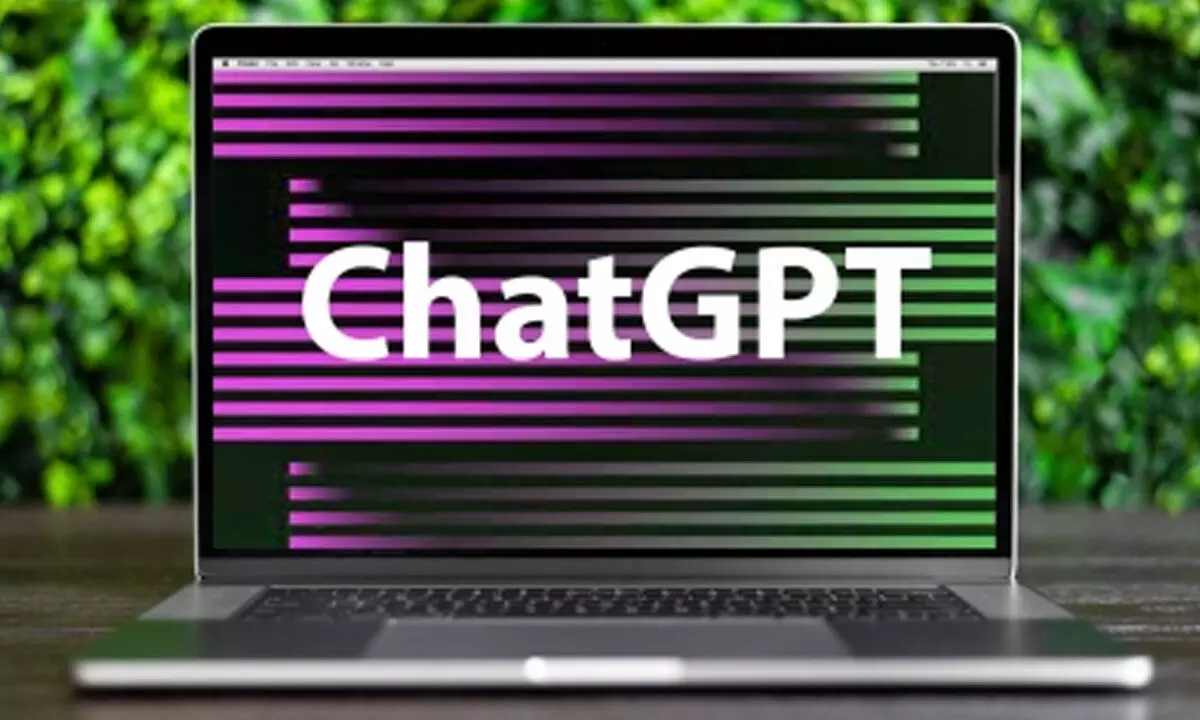Live
- Design conclave held at T-Hub
- EAGLE eye on drug menace
- Let’s return to our roots, Venkaiah Naidu tells people
- TG has 234 enemy properties; RR district tops the list
- MEIL dispatches refinery equipment for Mongolia
- 265 SCTPCs take oath in Rachakonda
- Commissioner CV Anand urges dedication as 747 SCTPCs take oath
- 270 trainee PCs passing-out parade held at Cyberabad
- Beware of bacterial predators
- Empowering youth for Viksit Bharat
Just In
ChatGPT’s answer to healthcare-related queries at par with humans: Study

ChatGPT
ChatGPT's responses to people's healthcare-related queries are nearly indistinguishable from those provided by humans, reveals a new study, suggesting the potential for chatbots to be effective allies to healthcare providers' communications with patients.
New York: ChatGPT's responses to people's healthcare-related queries are nearly indistinguishable from those provided by humans, reveals a new study, suggesting the potential for chatbots to be effective allies to healthcare providers' communications with patients.
In the study, researchers from New York University presented 392 people aged 18 and above with 10 patient questions and responses, with half of the responses generated by a human healthcare provider and the other half by OpenAI’s chatbot ChatGPT.
Participants were asked to identify the source of each response and rate their trust in the ChatGPT responses using a 5-point scale from completely untrustworthy to completely trustworthy.
The study, published in JMIR Medical Education, found people have limited ability to distinguish between chatbot and human-generated responses.
On average, participants correctly identified chatbot responses 65.5 per cent of the time and provider responses 65.1 per cent of the time, with ranges of 49.0 per cent to 85.7 per cent for different questions.
Results remained consistent no matter the demographic categories of the respondents.
The study also found participants mildly trust chatbots' responses overall (3.4 average score), with lower trust when the health-related complexity of the task in question was higher.
Logistical questions (e.g. scheduling appointments, insurance questions) had the highest trust rating (3.94 average score), followed by preventative care (e.g. vaccines, cancer screenings, 3.52 average score).
Diagnostic and treatment advice had the lowest trust ratings (scores 2.90 and 2.89, respectively).
According to the researchers, the study highlights the possibility that chatbots can assist in patient-provider communication particularly related to administrative tasks and common chronic disease management. Further research is needed, however, around chatbots' taking on more clinical roles, said the researchers from NYU Tandon School of Engineering and Grossman School of Medicine.
However, providers should remain cautious and exercise critical judgement when curating chatbot-generated advice due to the limitations and potential biases of AI models, they noted.

© 2024 Hyderabad Media House Limited/The Hans India. All rights reserved. Powered by hocalwire.com






